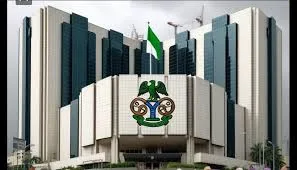The Women in Energy Network (WIEN) and Smart Gas Limited have announced a partnership aimed at facilitating the adoption of Liquefied Petroleum Gas (LPG) by 500,000 households over the next five years.
WIEN President Mrs. Eyono Fatai-Williams shared the news in Lagos, highlighting that this initiative supports the government’s goals for fuel diversification and economic sustainability.
At a press conference, Mrs. Fatai-Williams stated: “I am proud to announce this collaboration between WIEN and Smart Gas Limited to promote LPG usage in our communities. This effort aligns with Nigeria’s strategy to diversify its energy sources and achieve economic stability by reducing reliance on traditional fuels.”
She emphasized the benefits of LPG, noting that it provides a cost-effective and sustainable energy alternative to firewood, coal, and kerosene. By boosting LPG use, the initiative supports the National Gas Expansion Program (NGEP), which aims to increase domestic LPG consumption and reduce dependence on more polluting fuels.
LPG offers significant advantages, including reduced household energy costs and a decrease in fuel importation expenses. Utilizing local LPG sources, such as NLNG and NEDOGAS, also keeps energy-related funds within the country, bolstering the economy.
Additionally, Mrs. Fatai-Williams highlighted the health benefits of switching to LPG. Household air pollution from firewood and coal contributes to respiratory diseases, especially affecting women and children. LPG adoption helps mitigate these health risks and lowers healthcare costs.
The environmental impact is also positive, as LPG use reduces deforestation, soil erosion, and harmful emissions associated with traditional fuels. This supports Nigeria’s climate change efforts and ecosystem preservation goals.
Moreover, LPG’s efficiency saves time compared to collecting firewood, empowering households and freeing up time for education and economic activities. This initiative also fosters economic diversification by creating new value chains and job opportunities in the LPG distribution sector.
Ensuring equitable access to cleaner energy is a key aspect of the government’s energy policies. This program aims to extend LPG benefits to underserved and rural communities, aligning with the government’s commitment to reducing energy poverty.
Finally, Mrs. Fatai-Williams emphasized the importance of safety, noting that LPG, when handled properly, is safer than traditional fuels. The partnership will focus on raising awareness about LPG safety, aligning with the government’s efforts to enhance safety standards in energy use.
She concluded: “While the government has engaged with various industry partners on gas penetration and fuel diversification, we believe our role as mothers and home managers is crucial in advancing these programs to replace dirty fuels and improve our children’s health and environment.”






























